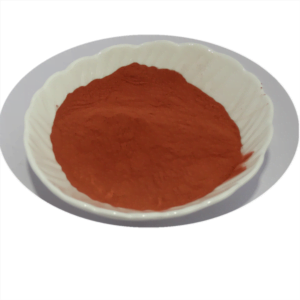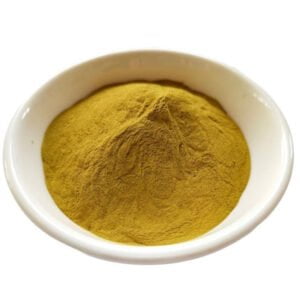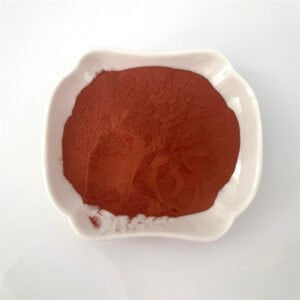ZnAl20 Metal Powder
Table of Contents
ZnAl20 Metal Powder is a unique material composed of a 20% aluminum (Al) and 80% zinc (Zn) blend. This combination imbues ZnAl20 with a compelling set of properties, making it a valuable asset in various industrial applications. But what exactly is ZnAl20 metal powder, and how does it function? Buckle up, because we’re diving deep into the world of ZnAl20, exploring its composition, properties, applications, and even delving into its advantages and limitations.
the Composition of ZnAl20 Metal Powder
ZnAl20 metal powder, as the name suggests, is a composite material. Imagine a microscopic world where tiny, individual particles of zinc and aluminum come together to form a cohesive powder. The ratio of these particles is crucial, with zinc constituting the majority (80%) and aluminum playing a supporting role (20%). This specific composition unlocks a range of properties that make ZnAl20 stand out from the crowd.
Key Compositional Points:
- Dominant Zinc (80%): Zinc forms the backbone of ZnAl20, contributing to its excellent corrosion resistance and strong affinity for forming bonds with other materials.
- Aluminum Ally (20%): The inclusion of aluminum enhances the strength and wear resistance of ZnAl20 compared to pure zinc powder.
This synergistic blend of zinc and aluminum creates a material that’s both strong and corrosion-resistant, a winning combination for various industrial applications.
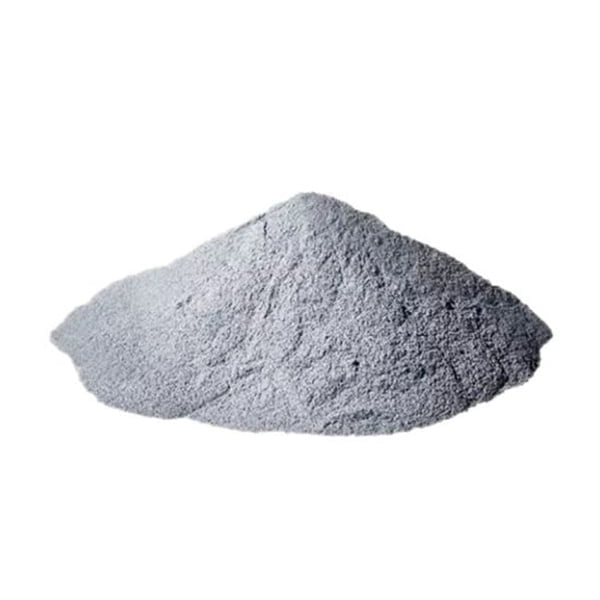
Properties of ZnAl20 Metal Powder
Now that we’ve unveiled the makeup of ZnAl20, let’s delve into its properties. These characteristics define how ZnAl20 behaves and performs in different situations.
Key Properties of ZnAl2 Metal Powder:
- High Strength: Compared to pure zinc powder, ZnAl20 boasts superior strength due to the presence of aluminum particles. This enhanced strength allows ZnAl20 to withstand greater pressure and stress.
- Excellent Corrosion Resistance: Zinc is a natural champion when it comes to resisting corrosion. In ZnAl20, this inherent property is further amplified, making it a great choice for applications exposed to harsh environments.
- Good Electrical Conductivity: ZnAl20 exhibits decent electrical conductivity, allowing it to conduct electricity effectively. This property finds applications in conductive coatings and electromagnetic shielding.
- Low Melting Point: ZnAl20 boasts a relatively low melting point compared to many other metal powders. This characteristic makes it ideal for processes like thermal spraying and metal injection molding (MIM).
- Good Flowability: ZnAl20 particles possess good flowability, enabling them to move freely and fill molds or containers efficiently. This characteristic is crucial for manufacturing processes that rely on uniform powder distribution.
The unique blend of properties possessed by ZnAl20 makes it a versatile material applicable in various industrial sectors.
the Applications of ZnAl20 Metal Powder
ZnAl20 metal powder isn’t just a collection of interesting properties; it’s a workhorse material with a diverse range of applications. Let’s explore some of the ways ZnAl20 puts its properties to good use:
Common Applications of ZnAl20 Metal Powder:
- Thermal Spraying: ZnAl20’s combination of strength, corrosion resistance, and low melting point makes it a popular choice for thermal spraying. In this process, ZnAl20 particles are melted and sprayed onto a substrate, creating a protective coating that enhances the substrate’s properties.
- Metal Injection Molding (MIM): MIM is a manufacturing technique that utilizes metal powders. ZnAl20’s good flowability and low melting point make it well-suited for MIM. The powder is injected into a mold, shaped, and then sintered (heated) to form a near-net-shape metal component.
- Sacrificial Anodes: ZnAl20 excels in applications where corrosion protection is paramount. Its excellent corrosion resistance allows it to be used as a sacrificial anode, protecting other metals from corrosion by preferentially corroding itself. This finds application in pipelines, underground structures, and marine environments.
- Conductive Coatings: ZnAl20’s decent electrical conductivity makes it suitable for creating conductive coatings. These coatings can be applied to various materials to improve their electrical conductivity or act as electromagnetic shielding.
- Additive Manufacturing: With the rise of additive manufacturing techniques like 3D printing, ZnAl20 is emerging as a promising material. Its flowability and low melting point make it suitable for these processes, enabling the creation of complex, near-net-shape metal components.
Specific ZnAl20 Powder Models
Having explored the general characteristics of ZnAl20 metal powder, let’s delve deeper and investigate some specific models offered by various manufacturers. This will provide a clearer picture of the variations available and their potential applications.
Here are 10 ZnAl20 metal powder models to consider, along with their key features:
1. AMPCOL ZM20
- Manufacturer: AMPCOL [Who is AMPCOL?]
- Key Features:
- Spherical morphology (powder particles are round) for excellent flowability and packing density.
- High purity (over 99.9% combined Zn and Al) for consistent performance.
- Optimized for thermal spraying applications, particularly for corrosion protection and wear resistance.
2. Höganäs ZA20
- Manufacturer: Höganäs [Who is Höganäs?]
- Key Features:
- Irregular particle shapes for enhanced mechanical interlocking in coatings produced via thermal spraying.
- Good balance between strength and corrosion resistance.
- Suitable for thermal spraying and metal injection molding (MIM).
3. Sandvik Osprey Z20
- Manufacturer: Sandvik Osprey [Who is Sandvik Osprey?]
- Key Features:
- Produced using a gas-atomization process, resulting in high purity and spherical morphology.
- Excellent flowability for efficient use in MIM processes.
- Well-suited for applications requiring high strength and dimensional accuracy.
4. Carpenter Additive AM Z20
- Manufacturer: Carpenter Additive [Who is Carpenter Additive?]
- Key Features:
- Specifically developed for additive manufacturing processes like 3D printing.
- Tight particle size distribution for consistent printing behavior.
- Offers good strength and corrosion resistance for additively manufactured parts.
5. BASF Schwarzheide Catamold ZA20
- Manufacturer: BASF Schwarzheide [Who is BASF Schwarzheide?]
- A subsidiary of BASF
- Key Features:
- Optimized for metal injection molding (MIM).
- Offers good sinterability (ability to form strong bonds during MIM) for complex geometries.
- Well-suited for applications requiring high dimensional precision.
6. Merck Millipore Zimaloy 2000
- Manufacturer: Merck Millipore [Who is Merck Millipore?]
- Key Features:
- Available in various particle sizes to cater to different application needs.
- Offers a good balance between strength, corrosion resistance, and electrical conductivity.
- Suitable for thermal spraying, MIM, and conductive coatings.
7. APEX Z20
- Manufacturer: APEX [Who is APEX?]
- Key Features:
- Cost-effective option for general-purpose thermal spraying applications.
- Offers decent strength and corrosion resistance.
- A good choice for applications where budget is a primary concern.
8. Rio Tinto Alcan ZA
- Manufacturer: Rio Tinto Alcan [Who is Rio Tinto Alcan?]
- Key Features:
- Produced using a water atomization process, resulting in a slightly irregular particle morphology.
- Offers good balance between strength and ductility (ability to deform without breaking).
- Suitable for thermal spraying applications requiring both strength and some flexibility.
9. Premco ZA20
- Manufacturer: Premco [Who is Premco?]
- Key Features:
- Tightly controlled chemistry for consistent performance.
- Offers good oxidation resistance at elevated temperatures.
- Well-suited for thermal spraying applications in harsh environments.
10. Speciality Metals ZM
- Manufacturer: Speciality Metals [Who is Speciality Metals?]
- Key Features:
- Available in custom blends with varying Zn/Al ratios to tailor properties for specific applications.
- Offers high purity for demanding applications.
- A good choice for users requiring a high degree of customization.
Please note: This list is not exhaustive, and there are many other ZnAl20 metal powder models available from various manufacturers. It’s crucial to consult with the manufacturers and review their datasheets to select the most suitable ZnAl20 powder for your specific application.
the Pros and Cons of ZnAl20 Metal Powder
Every material has its own set of advantages and limitations. Understanding these is essential for making informed decisions about whether ZnAl20 is the right choice for your project.
Advantages of ZnAl20 Metal Powder:
- Excellent Corrosion Resistance: ZnAl20 inherits this property from zinc, making it a valuable material for applications exposed to harsh environments, such as pipelines, bridges, and marine structures. It can act as a barrier, protecting underlying materials from rust and degradation.
- Enhanced Strength Compared to Pure Zinc: The inclusion of aluminum particles in ZnAl20 elevates its strength compared to pure zinc powder. This translates to improved load-bearing capacity and better resistance to mechanical wear. Imagine ZnAl20 as a zinc warrior, fortified with aluminum to withstand greater stresses.
- Good Electrical Conductivity: While not a champion conductor like copper, ZnAl20 exhibits decent electrical conductivity. This property makes it suitable for applications requiring the passage of electricity, such as conductive coatings and electromagnetic shielding. Think of ZnAl20 as a bridge, allowing electrons to flow reasonably well across its metallic network.
- Low Melting Point: Compared to many other metal powders, ZnAl20 boasts a relatively low melting point. This characteristic makes it ideal for processes like thermal spraying and metal injection molding (MIM). During these processes, ZnAl20 particles readily melt and flow, enabling the creation of desired shapes and coatings. Picture ZnAl20 as a more cooperative metal powder, readily transitioning from a solid to a molten state for efficient processing.
- Good Flowability: ZnAl20 particles possess good flowability, allowing them to move freely and fill molds or containers efficiently. This characteristic is crucial for manufacturing processes that rely on uniform powder distribution. Imagine ZnAl20 particles as tiny, smooth spheres that can easily roll and pack together, ensuring consistent application in processes like MIM.
Disadvantages of ZnAl20 Metal Powder:
- Lower Strength Compared to Some Metal Powders: While stronger than pure zinc powder, ZnAl20 might not be the top pick for applications requiring exceptional strength. Compared to metal powders like stainless steel or nickel, ZnAl20 might fall short in terms of sheer load-bearing capacity. Think of ZnAl20 as a capable but not the strongest warrior in the metal powder kingdom.
- Susceptibility to High-Temperature Oxidation: ZnAl20 can be susceptible to oxidation at elevated temperatures. This means it can react with oxygen in the air and form oxides, potentially affecting its properties. If your application involves high-temperature environments, ZnAl20 might require additional protection or alternative materials might be a better choice. Imagine ZnAl20 as a metal powder that needs a heat shield at extremely high temperatures to prevent it from reacting with oxygen too readily.
- Limited Formability: ZnAl20, once processed into a solid form, might exhibit limited formability compared to some other metals. This means it might not be ideal for applications requiring extensive bending or shaping after solidification. Think of ZnAl20 as a more rigid material once set, not as easily bendable as some other metals.
- Moisture Sensitivity: ZnAl20 can be sensitive to moisture. Exposure to moisture can lead to the formation of oxides and affect the flowability of the powder. Proper storage and handling are crucial to maintain the integrity of ZnAl20 powder. Imagine ZnAl20 as a bit like a fussy teabag; it needs to be kept dry to perform optimally.
Making the Choice: ZnAl20 or Not ZnAl20?
By understanding the advantages and limitations of ZnAl20 metal powder, you can make an informed decision about its suitability for your specific project. Consider the following factors:
- Required Properties: Identify the key properties your application demands. Does it prioritize strength, corrosion resistance, or electrical conductivity? ZnAl20 excels in some areas but might not be the best choice for all.
- Processing Methods: The chosen manufacturing process can influence your selection. ZnAl20’s low melting point and good flowability make it compatible with techniques like thermal spraying and MIM.
- Environmental Conditions: If your application involves harsh environments or high temperatures, ZnAl20’s susceptibility to oxidation might necessitate exploring alternative materials with better high-temperature stability.
Ultimately, ZnAl20 is a versatile metal powder offering a compelling combination of properties. By carefully weighing its pros and cons and considering your specific needs, you can determine if ZnAl20 is the perfect fit for your project.
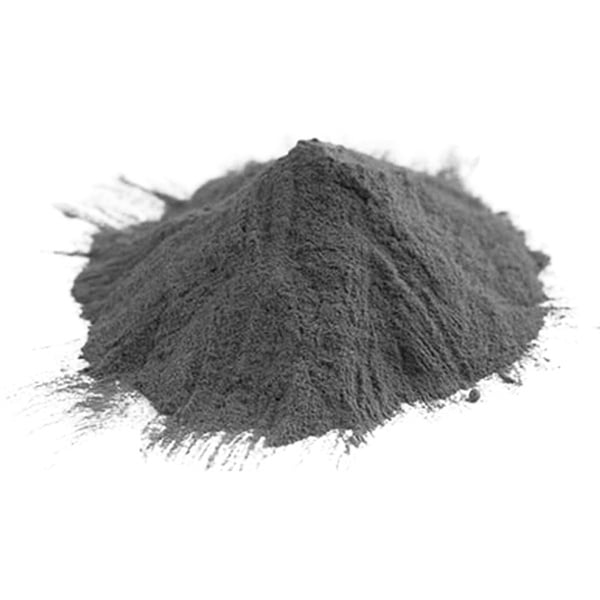
FAQ
| Question | Answer |
|---|---|
| What is ZnAl20 metal powder made of? | ZnAl20 metal powder is a composite material composed of 80% zinc (Zn) and 20% aluminum (Al). |
| What are the advantages of ZnAl20 metal powder? | ZnAl20 offers several advantages, including: * Excellent corrosion resistance * Enhanced strength compared to pure zinc * Good electrical conductivity * Low melting point * Good flowability |
| What are the disadvantages of ZnAl20 metal powder? | Some limitations of ZnAl20 to consider: * Lower strength compared to some other metal powders * Susceptibility to high-temperature oxidation * Limited formability * Moisture sensitivity |
| What are some applications of ZnAl20 metal powder? | ZnAl20 finds use in various applications, such as: * Thermal spraying for corrosion and wear protection * Metal injection molding (MIM) for complex metal components * Sacrificial anodes for cathodic protection * Conductive coatings * Additive manufacturing (3D printing) |
| How is ZnAl20 metal powder different from pure zinc powder? | While ZnAl20 shares some properties with zinc, key differences exist: * Strength: ZnAl20 boasts improved strength due to the presence of aluminum. * Corrosion Resistance: ZnAl20 inherits excellent corrosion resistance from zinc, but it might be slightly enhanced in the ZnAl20 blend. * Melting Point: Both ZnAl20 and zinc have relatively low melting points, but ZnAl20’s specific melting point might differ slightly depending on the manufacturer’s process. |
| Where can I buy ZnAl20 metal powder? | Several manufacturers supply ZnAl20 metal powder. Some prominent ones include AMPCOL, Höganäs, Sandvik Osprey, and Carpenter Additive. It’s recommended to research and compare offerings from various suppliers to find the best fit for your needs. |
| How should ZnAl20 metal powder be stored? | Proper storage is crucial for maintaining ZnAl20’s integrity. It should be stored in a dry, cool environment away from direct sunlight and moisture. Sealed containers with desiccant packets are recommended to minimize moisture exposure. |
| Are there any safety precautions to consider when handling ZnAl20 metal powder? | ZnAl20 powder can be mildly irritating to the skin and respiratory system. It’s advisable to wear personal protective equipment (PPE) like gloves, safety glasses, and a dust mask when handling ZnAl20 to minimize inhalation and skin contact. |
Share On
MET3DP Technology Co., LTD is a leading provider of additive manufacturing solutions headquartered in Qingdao, China. Our company specializes in 3D printing equipment and high-performance metal powders for industrial applications.
Inquiry to get best price and customized Solution for your business!
Related Articles
About Met3DP
Recent Update
Our Product
CONTACT US
Any questions? Send us message now! We’ll serve your request with a whole team after receiving your message.

Metal Powders for 3D Printing and Additive Manufacturing
COMPANY
PRODUCT
cONTACT INFO
- Qingdao City, Shandong, China
- [email protected]
- [email protected]
- +86 19116340731











